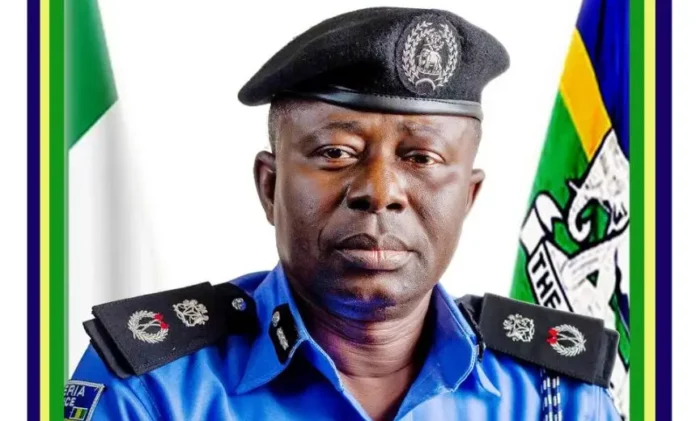The Commissioner of Police for the Federal Capital Territory (FCT), Ajao Adewale, has raised alarm over the growing threat of illegal mining in Nigeria, describing it as a cartel-driven criminal operation that is directly funding banditry and costing the country an estimated \$9 billion (₦13.7 trillion) every year.
Adewale made the revelation at a media parley hosted by the Nigeria Union of Journalists (NUJ), FCT Council, in Abuja. The session, themed “The Fight Against Illegal Mining: Role of the Media,” brought together security officials, journalists, and stakeholders in the mining sector.
According to Adewale, illegal mining is no longer just an economic issue but has become a major national security concern.
“Illegal mining is one of the most dangerous threats facing Nigeria today. The Nigeria Extractive Industries Transparency Initiative (NEITI) has estimated that we lose up to \$9 billion annually to illegal mining and gold smuggling,” he said.
“These operations are not being run by ordinary artisanal miners. Powerful Nigerians are behind them. They use foreigners as fronts and funnel the profits into funding banditry, terrorism, and other criminal activities.”
He listed several states as hotspots for illegal mining, including Zamfara, Nasarawa, Kogi, Kaduna, Niger, Kwara, Osun, and even parts of the FCT. In Abuja alone, over 70 suspects were arrested between 2023 and 2024 in areas such as Gwagwalada, Asokoro, Gaube, Kuje, and Katampe Extension.
“These networks operate like organised crime cartels. They control land, illegal extraction processes, and smuggling routes. Without collaboration between security agencies and the media, they will continue to flourish,” he warned.
Backing the commissioner’s statement, the Commander of the Mining Marshals, Attah Onoja, revealed that efforts to combat illegal mining are being sabotaged by what he described as “rogue journalism” paid for by cartel interests.
“Some of these illegal mining cartels have started sponsoring biased reporting aimed at discrediting the work of law enforcement. We won’t be deterred. This is why we are calling on the media to become true partners in this fight,” Onoja said.
He explained that the Mining Marshals, under the Nigeria Security and Civil Defence Corps (NSCDC), were established as a special enforcement unit by the Minister of Solid Minerals Development, Dr. Dele Alake, under the current administration. The unit has since dismantled several illegal camps and prosecuted many offenders.
Onoja admitted that the task has not been easy due to resistance from influential individuals and a lack of adequate logistics. However, he maintained that fighting illegal mining is essential for Nigeria’s survival.
“Our minerals belong to all Nigerians, not just a few people who have the means to exploit them unlawfully,” he said.
Also speaking at the event, the National President of the Miners Association of Nigeria (MAN), Dele Ayanleke, pointed out that illegal mining continues to thrive due to corruption, poverty, and weak enforcement of laws.
“From child labour in Nasarawa’s lithium mines to the dangerous use of mercury in Zamfara’s gold pits, the social and environmental costs are enormous,” he said. “Legitimate investors are being driven away, communities are being destroyed, and insecurity is getting worse.”
Ayanleke urged the government to show stronger political will in prosecuting high-profile individuals connected to illegal mining, while also calling for better regulation of the sector.
The Chairman of the NUJ FCT Council, Grace Ike, challenged journalists to go beyond surface-level reporting and take up investigative work that exposes the powerful financiers behind these operations.
“As journalists, we are gatekeepers of truth. We must help the public understand how illegal mining is harming our economy, our environment, and our people,” she said.
She stressed the need for balanced, fact-based reporting and encouraged the media to give voice to affected communities and highlight the consequences of illegal mining on local water resources, farmland, and livelihoods.
“The NUJ FCT Council will continue to amplify the voices of these communities. Our goal is to empower citizens with the right information so they can demand stronger regulation and environmental protection,” she added.
In recent years, the link between illegal mining and rising insecurity in Nigeria has become increasingly clear. Security analysts believe that the money generated from illegal mining is being used to fund armed groups, particularly in the North and Middle Belt regions, where miners and terrorists often operate side by side.

